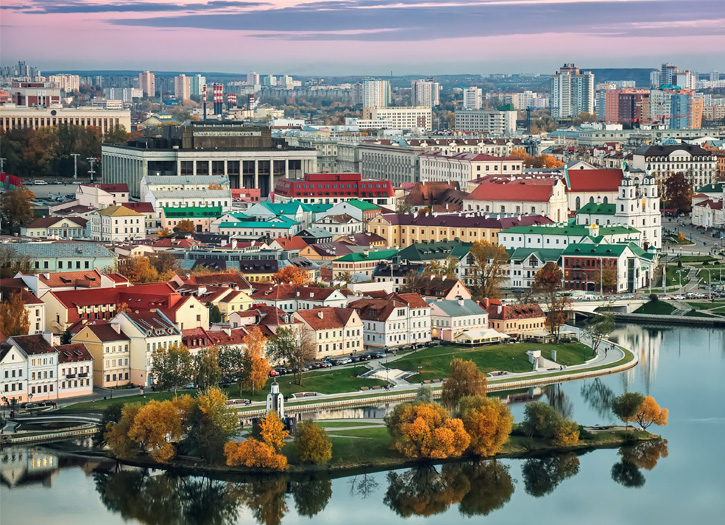The COVID-19 pandemic in Belarus is part of the ongoing worldwide pandemic of coronavirus disease 2019 (COVID-19) caused by severe acute respiratory syndrome coronavirus 2 (SARS-CoV-2). The virus was confirmed to have spread to Belarus, when the first case of COVID-19 in the country was registered in Minsk on 28 February 2020. On 15 September, a total of 74,552 confirmed cases have been reported, including 72,661 recoveries and 761 deaths. More than 1,666,000 COVID-19 tests have been conducted in Belarus as of date.
On 25 March, a mandatory 14-day self-quarantine requirement was instituted for persons entering Belarus from countries affected by the pandemic, with the exception of diplomats and their families, air crews and persons transiting Belarus on return to their home countries.As of 30 March, Belarus had not initiated a nation-wide quarantine effort.That, as well as the gradual decrease in transparency of the official reports on the pandemic, led to criticism from the press and population, emphasizing the absence of up-to-date information about the territories affected by the virus, decreased update frequency and increased ambiguity of the official reports, as well as restraint of the non-governmental media from the government sessions on the epidemiological situation in the country.On 4 April, the Ministry of Education of Belarus announced a one-week extension of spring vacation for schools.
In a Ministry of Health briefing given on 10 April it was clarified that Belarus did not plan any postponement of conscription. According to Elena Bogdan, the Deputy Minister of Health, 8-10% of COVID-19 tests give positive results, and more than 65,000 COVID-19 tests are currently available in Belarus. It was also reported that 10 out of 169 recovered COVID-19 patients had agreed to become the donors of isoimmune blood plasma: “This is a new scientific direction for the RSPC of Transfusiology and Medical Biotechnologies. We will be developing a new method of treating the most severe cases of coronavirus infection with isoimmune plasma of the recovered patients”.
On 11 June, the 14-day self-quarantine requirement issued on 9 April was lifted from persons entering Belarus from 37 countries. Since 11 June, all foreign citizens entering Belarus must provide a PCR-based COVID-19 test certificate acquired no longer than 2 days prior to entering the country. On 25 June, persons entering Belarus from 14 more countries became exempt from the self-quarantine requirement. On 9 July, the list was extended by 12 countries. On 15 July, Russia was excluded from the list. On 4 August, Azerbaijan, Mongolia, Tanzania and Sri Lanka were excluded from the list. On 10 September, Uzbekistan was excluded from the list, and the exclusions of Spain, Montenegro, Israel, Andorra and Malta were reverted due to increasing numbers of new infections.
On 30 March 2020, Belarus and International Monetary Fund (IMF) started negotiations on a $900 million loan intended to compensate the economic losses from the coronavirus pandemic.On 19 June 2020, Alexander Lukashenko stated the IMF was demanding imposition of lockdown measures as a condition for loans, but the demands were declined by Minsk.On 10 September, Belarus was refused the loan due to “significant disagreements on the reacting measures to current difficulties”.According to the National Bank of Belarus data,inflationin March accelerated and accounted to 4.9%, 0.85% higher than in February. Belarus was the only country in Europe whose association football league continued playing as planned in late March amid the pandemic. In most countries around the world, sports were cancelled to mitigate the spread of the virus.
According to the 27 April remarks by Dmitry Krutoy, the First Deputy Prime Minister of Belarus, a total of $2–2.5 billion of external loans were planned to be used as support for the Belarusian economy: “Speaking of negotiations with IMF, our quota allows for approximately $900 million, the World Bank – approximately $300 million, the European Investment Bank – approximately $300 million, as well. That is, in total we will be able to attract $2-2.5 billion from our creditors. These will be very good numbers”. According to Krutoy, healthcare system support and counter-unemployment measures were the main focus of the Belarusian government amid the pandemic crisis.








Add Comment